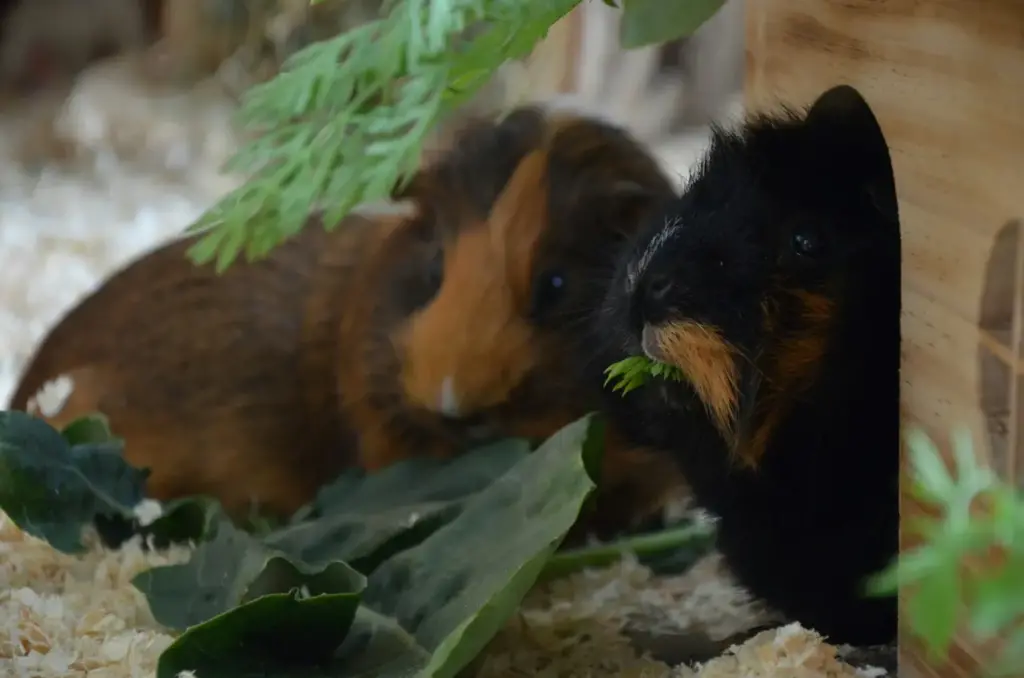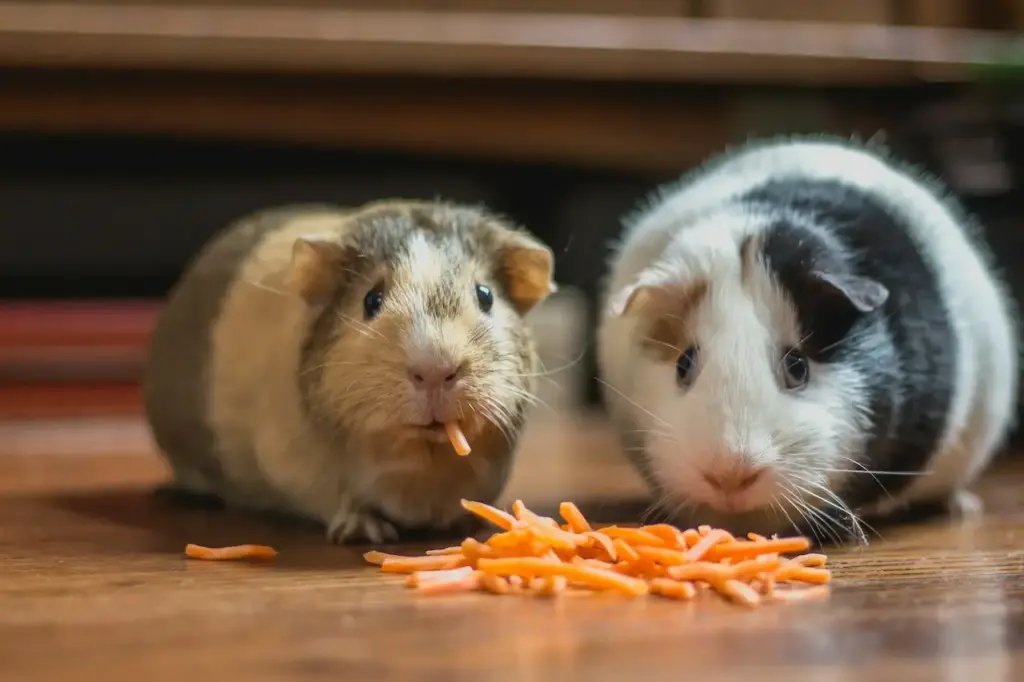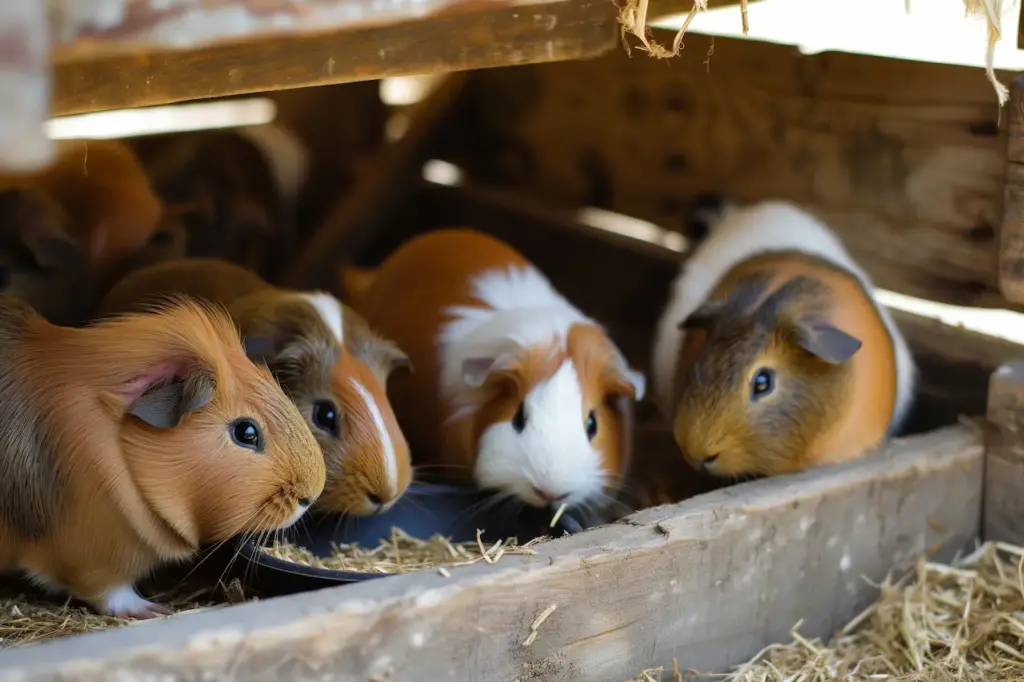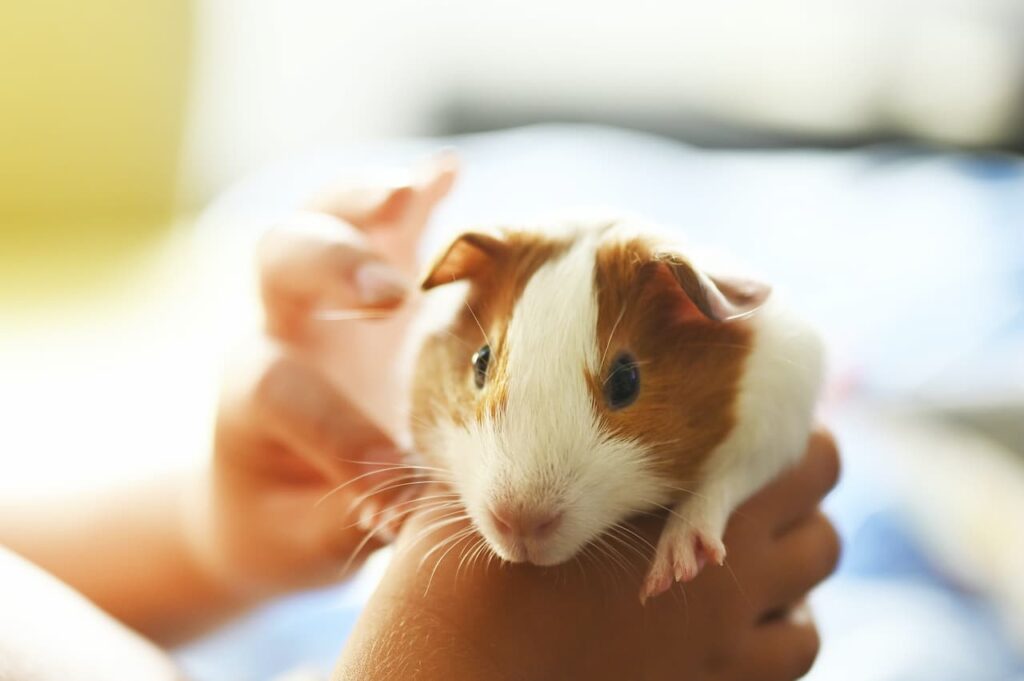Can Guinea Pigs Eat Spinach? Is It safe For Them?
Yes, they can eat spinach. You can decide if you want them to eat it after you have read about the benefits of spinach in their diet.
Most questions regarding guinea pig diets are answered by examining how much food they should be given. As long as you do not give them too much spinach, they will be fine.
As devoted caretakers of our beloved guinea pigs, ensuring they receive a balanced and nutritious diet is paramount to their health and well-being. Among the array of vegetables available, spinach often stands out as a nutrient-packed option, celebrated for its rich vitamin and mineral content. However, when it comes to guinea pigs, questions arise about whether spinach is a suitable addition to their diet. Can guinea pigs eat spinach safely? Let’s delve into the nutritional profile of spinach, its potential benefits, risks associated with its consumption, and guidelines for incorporating it into a guinea pig’s diet responsibly.
Table of Contents
Toggle
Spinach, revered for its vibrant green leaves and versatility in culinary applications, is renowned as a nutritional powerhouse in human diets. Packed with vitamins, minerals, and antioxidants, spinach offers an array of health benefits. It’s an excellent source of vitamin K, vitamin A, vitamin C, folate, iron, and calcium, among other essential nutrients. These nutrients play crucial roles in supporting various bodily functions, including immune function, bone health, and blood clotting.
Given its impressive nutritional profile, it’s natural to wonder whether guinea pigs can partake in the leafy goodness of spinach. The answer, in short, is yes—guinea pigs can eat spinach in moderation and as part of a varied diet. Spinach can provide valuable nutrients to guinea pigs, including vitamin C, which is essential for their health. Guinea pigs, like humans, are unable to synthesize vitamin C internally and must obtain it through their diet to prevent deficiencies and related health issues, such as scurvy.
Additionally, spinach contains fibre, which is essential for maintaining healthy digestion in guinea pigs. Fiber promotes gastrointestinal motility, prevents constipation, and supports overall digestive health—a crucial consideration for these small herbivores with sensitive digestive systems. By incorporating fiber-rich foods like spinach into their diet, guinea pigs can enjoy improved digestive function and overall well-being.
However, despite its nutritional benefits, there are some considerations to keep in mind when feeding spinach to guinea pigs. One concern is the presence of oxalates, naturally occurring compounds found in spinach and other leafy greens. Oxalates can bind to calcium in the gut, potentially forming insoluble crystals that may contribute to the development of bladder or kidney stones in guinea pigs over time.
While spinach contains moderate levels of oxalates, the risk of stone formation can be mitigated by offering spinach in moderation and alongside calcium-rich foods. Additionally, ensuring guinea pigs have access to fresh water at all times can help prevent urinary issues by promoting hydration and flushing out any excess oxalates.
Another consideration when feeding spinach to guinea pigs is the potential for pesticide residue. Spinach, like many conventionally grown fruits and vegetables, may contain traces of pesticides or other harmful chemicals used in agriculture. To minimize exposure to these contaminants, it’s advisable to choose organic spinach or thoroughly wash conventionally grown spinach before offering it to guinea pigs.

What vitamins and nutrients does spinach contain ?
Vitamin A
Guinea pigs require a lot of Vitamin A, even though their bodies cannot process it efficiently. They need to eat more of the foods that contain these vitamins and nutrients because their bodies can’t process them efficiently.
Vitamin A can be incorporated into their diet by consuming a variety of fruits and vegetables rich in the vitamin. This will ensure they receive the nutrition they require. Vitamin A helps maintain guinea-pig vision, which is crucial because it isn’t that good to begin with.
Vitamin C
Vitamin C-deficient guineas can develop scurvy, so you should include vitamin C-rich foods to help prevent it! Scurvy can have a variety of negative effects on guinea-pigs, including making eating difficult or painful. When guinea-pigs find eating difficult, it can cause dangerous weight loss and nutritional deficiencies.
Even smaller wounds can bleed more and take longer to heal. It’s vital that you provide vitamin C in high quantities throughout their diet. Guinea pigs are also susceptible to infections, so it’s important to give them the immune system they need to fight off these infections.
Calcium
Spinach is high in calcium. This can be bad, especially if it’s calcium-rich oxalates. Overconsumption can lead to bladder stones and urinary tract problems. Calcium is important for the formation of bones and strengthening them. You don’t need to remove it from your guinea-pig’s diet.
Some guinea-pigs may even require more calcium than others. This depends on many factors. Young guinea-pigs, for example, need more calcium to support their growth and development. They need calcium to aid in this process. This is similar to the way that human children are encouraged to drink a lot of milk to grow strong and tall.
What are the negative effects of spinach on guinea-pigs?
You may have wondered: Is spinach bad for guinea-pigs or good for them before reading this article? We’ve already mentioned that spinach isn’t necessarily bad for guinea-pigs. The issue is the amount they consume.
It is important that your guinea-pigs do not consume too many foods high in calcium. This can lead to serious urinary issues, which are best avoided.
Guinea pigs can eat spinach in small quantities, but will they enjoy it?
Guinea pigs love spinach, despite being told not to eat too much. This is similar to the way dogs are not allowed to eat chocolate but will eat it if their paws get it.
What is the best way to feed your Guinea Pig spinach?

It’s important to keep the amount of spinach you feed your guinea-pig under control. What is the maximum amount of spinach you can give to your guinea-pig? It’s important to remember that your piggies require a balanced diet to receive the nutrients they require. Guinea pigs require around one cup (250g) of fruits and vegetables as a supplement to their diets of hay pellets.
The ideal ratio of calcium to phosphorus is 1.33. Simple math will help you determine if your guinea-pig’s food has the right Ca:P ratio. Be sure to do this math using equal amounts of each vegetable you intend to feed your guinea-pig. Let’s use 40 g for this example.
There is a 2:1 ratio of Ca to P in spinach. Let’s pretend that we are also going to give them kale (2,4:1) and cucumber (0,7:1) as well as red bell pepper (0,5:1). Divide the total calcium content of all foods (5,6) by the number of food items (4). This calculation yields a number of 1.4. Add up the total amount phosphorus (4), and divide it by the number foods (4). This calculation gives you 1. This pretend meal has a Ca:P of 1.4:1, and that’s okay. However, it would be better to find a food with a Ca:P even lower to balance the ratio.
You should remember that guinea-pigs require up to 250 g of fresh fruit and vegetables to supplement the hay and pellets they eat. They need a varied diet to get all of their nutrients! You might be asking yourself, Can I Give My Guinea Pig Spinach Everyday? The answer is yes. It is recommended to give 40 grams per day, depending on how much calcium and phosphorus the other food contains. This would be around four leaves including the stems.
In general, you can feed your guinea-pigs spinach.
You can get all the nutrients spinach contains from other foods. It’s your choice if spinach is one of those. Spinach is a superfood, and for good reason. However, it’s important to consider all of your options. Well-rounded nutrition is the key to a happy, healthy guineapig!
Furthermore, while spinach can be a nutritious addition to a guinea pig’s diet, it should not constitute the sole or primary source of vegetables. Variety is key when it comes to providing a balanced diet for guinea pigs, so it’s essential to rotate spinach with other leafy greens and vegetables to ensure they receive a diverse array of nutrients. Additionally, spinach should always be offered in moderation, as excessive consumption may lead to digestive upset or other health issues.
In summary, spinach can be a beneficial and nutritious addition to a guinea pig’s diet when offered in moderation and with appropriate precautions. Its high vitamin and mineral content, including vitamin C and fibre, can support overall health and well-being in guinea pigs. However, it’s essential to be mindful of potential risks associated with oxalates and pesticide residues, as well as the importance of providing a varied diet that meets all of their nutritional needs. By incorporating spinach responsibly into their diet, you can ensure that your guinea pig enjoys the benefits of this leafy green while maintaining optimal health for years to come.


